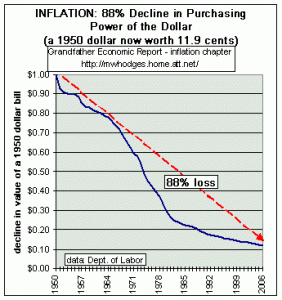
The Pros and Cons of Digital Money
The world has witnessed a significant shift towards digital transactions in recent years, raising the question of whether we are ready to abandon cash altogether. As technology continues to evolve and financial systems become increasingly digitized, the pros and cons of transitioning to a cashless society warrant careful consideration. In this article, we will explore the advantages and disadvantages of embracing digital money and evaluate whether the world is truly prepared to bid farewell to cash.
Pros of Digital Money
Convenience and Efficiency: One of the most significant advantages of digital money is the convenience it offers. With mobile payment apps and online banking, individuals can effortlessly make transactions anytime, anywhere. Digital payments eliminate the need to carry physical cash, reducing the risk of loss or theft.
Moreover, electronic transactions enable swift and seamless transfers, enhancing overall efficiency in financial transactions.
Financial Inclusion: Digital money has the potential to bridge the gap between the banked and the unbanked population. Many individuals, particularly in developing countries, lack access to traditional banking services. Digital payments provide an opportunity for financial inclusion, allowing individuals to participate in the formal economy, build credit histories, and access financial services that were previously out of reach.
Enhanced Security: Digital transactions offer a higher level of security compared to cash transactions. Digital payment platforms implement encryption and authentication protocols to safeguard personal and financial information. Additionally, digital records of transactions leave a traceable trail, reducing the likelihood of money laundering and tax evasion.
Cost Savings: From a societal perspective, the transition to digital money can lead to significant cost savings. The production, transportation, and maintenance of physical currency involve substantial expenses. By adopting digital payments, governments and financial institutions can reduce these costs and allocate resources to other pressing needs.
Cons of Digital Money
Technological Dependence: A cashless society heavily relies on technological infrastructure, such as reliable internet connectivity and functioning digital payment systems. In regions with limited access to technology or unstable networks, the complete eradication of cash may exclude certain segments of the population and deepen existing inequalities.
Privacy Concerns: Digital transactions generate a wealth of data that can be exploited for various purposes. There are concerns about the privacy of personal financial information and the potential for surveillance by both governmental and corporate entities. Striking a balance between convenience and preserving privacy is crucial in the transition to digital money.
Cybersecurity Risks: As digital transactions become more prevalent, so do cyber threats. Hackers and cybercriminals are constantly evolving their techniques to exploit vulnerabilities in digital payment systems. A widespread adoption of digital money necessitates robust security measures to protect against data breaches and fraud.
Exclusion of Vulnerable Groups: Elderly individuals, those with limited access to technology, or people without the necessary digital literacy may face challenges in adapting to a cashless society. Ensuring that alternative payment methods are accessible and user-friendly for all segments of the population is essential to prevent excluding vulnerable groups.
Conclusion
The world stands at a crossroads, contemplating the transition to a cashless society. While digital money offers numerous benefits, such as convenience, financial inclusion, enhanced security, and cost savings, there are also significant challenges to consider. Technological dependence, privacy concerns, cybersecurity risks, and potential exclusion of vulnerable groups must be addressed before completely abandoning cash.
Ultimately, achieving a balance between the advantages of digital money and the need to preserve inclusivity and privacy is crucial. Governments, financial institutions, and technology providers must collaborate to ensure the seamless integration of digital payment systems while addressing the concerns and needs of all individuals. By doing so, we can move towards a future where digital money coexists with cash, catering to the diverse needs of a rapidly evolving global society.

